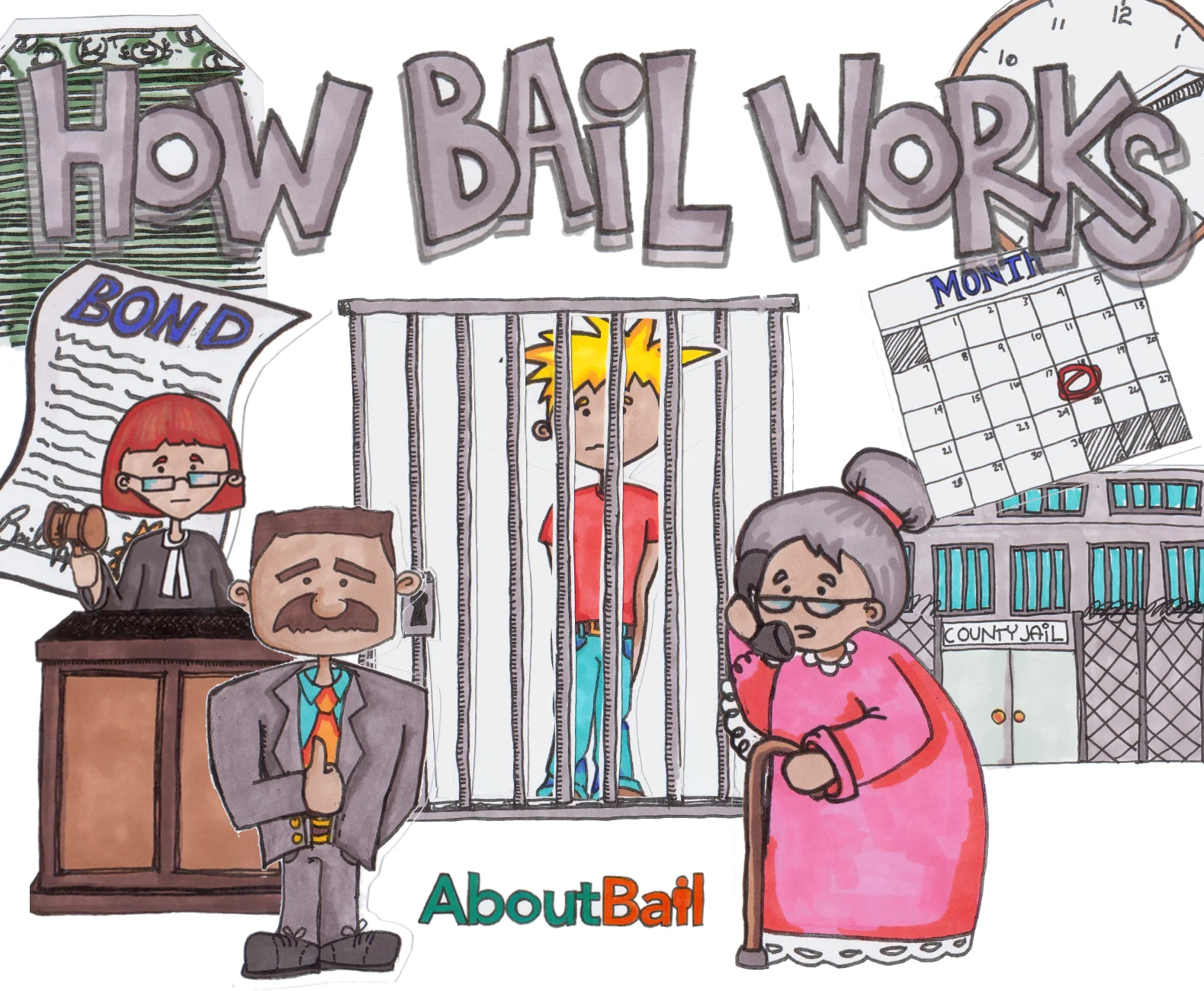Trustworthy Bail Bonds Montgomery County - Specialist Aid
Trustworthy Bail Bonds Montgomery County - Specialist Aid
Blog Article
Unlocking the Tricks of Bail Bonds: A Thorough Overview
Navigating the detailed world of Bail bonds can commonly really feel like analyzing a puzzling code, with layers of complexity that continue to be hidden to several. From the various sorts of Bail bonds readily available to the pivotal function of a co-signer, each aspect plays a crucial part in this legal process. As we untangle the web of details surrounding Bail bonds, a clearer understanding emerges, losing light on the systems that underpin this system. Join us as we dive much deeper right into the nuanced elements of Bail bonds, uncovering the tricks that exist within and demystifying this commonly nontransparent world.
Comprehending Bail Bonds Refine
When facing a lawful situation that calls for publishing Bail, comprehending the Bail bonds procedure is critical to browse the intricacies of the judicial system effectively. Bail bonds serve as an economic warranty to the court that the offender will stand for all called for court looks. This process includes a bail bondsman, that normally charges a non-refundable fee, typically around 10% of the total Bail quantity, to publish the Bail in behalf of the accused.

Additionally, collateral, such as building or possessions, may be required to secure the bail bond. Recognizing the terms and problems of the bail bond agreement is important to ensure conformity and prevent any added legal effects. By comprehending the Bail bonds process, people can make informed choices when navigating the legal system.
Kinds of Bail Bonds Available
Different kinds of Bail bonds are offered to people dealing with legal process, offering alternatives tailored to certain circumstances and needs. The most usual type is a guaranty bond, where a bondsman pays the complete Bail amount on behalf of the defendant in exchange for a non-refundable charge, generally around 10% of the total Bail. Money bonds call for the full Bail total up to be paid in cash before the accused can be launched. Home bonds, on the various other hand, involve using beneficial assets like property as security for the Bail amount.
Furthermore, there are federal Bail bonds for situations including government charges and migration bonds for people restrained by Migration and Traditions Enforcement (ICE) Understanding the numerous kinds of Bail bonds readily available can assist accuseds navigate the legal procedure extra properly.
Duties of the Co-Signer

In addition, as a co-signer, you are responsible for guaranteeing that the offender complies with any kind of conditions established by the court, such as going to therapy or avoiding from specific activities. It is essential to maintain open interaction with the defendant to check their conformity and deal with any kind of issues without delay. Eventually, being a co-signer entails a significant level of trust fund and duty, as you are monetarily and legally connected to the offender's Bail obligations.
Repercussions of Skipping Bail

Avoiding Bail can have major lawful repercussions for both the co-signer and the defendant associated with the bail bond agreement. When an offender stops working to show up in court as called for after posting Bail, the court commonly issues a warrant for their arrest. This not just exacerbates the accused's lawful concerns however likewise places the co-signer in jeopardy.
For the accused, missing Bail can lead to extra criminal charges, such as ridicule of court or Bail leaping, which can result in fines, a retraction of Bail privileges, or perhaps imprisonment. Additionally, the offender might shed the Bail quantity paid and any security given.
Co-signers also deal with considerable effects if the offender misses Bail. As the co-signer assures the accused's appearance in court and is economically accountable for the complete Bail amount, they may be called for to pay the entire Bail if the offender absconds. This can lead to financial strain, damaged credit history, and prospective legal action here against the co-signer.
Key Factors in Bail Bond Approval
Extra significant offenses might lead to greater Bail quantities or even a rejection of Bail entirely. A background of previous sentences or a pattern of missing court dates can raise red flags and make it harder to secure a bail bond.
Additionally, the connections the offender needs to the neighborhood can influence the approval of a bail bond. Solid area connections, such find this as secure work, family members links, and long-term residency, can function in favor of the accused. On the other hand, trip danger problems may arise if the offender has no solid links to the neighborhood. Monetary resources likewise play a significant function. The capacity to pay the Bail amount or supply collateral can boost the opportunities of bail bond approval. Eventually, a mix of these variables is evaluated by the court when identifying whether to authorize a bail bond.
Final Thought
In conclusion, recognizing the Bail bonds process, the kinds readily available, the obligations of the co-signer, the repercussions of missing Bail, and the key consider bail bond authorization are crucial for navigating the legal system. By familiarizing oneself with these elements, people can make informed decisions and ensure a smoother process when taking care of Bail bonds. It is very important to comply with the needs and standards set forth to stay clear of any kind of possible complications.
The most typical type is a surety bond, where a bail bondsman pays the full Bail quantity on behalf of the accused in exchange for a non-refundable charge, normally around 10% of the total Bail. By signing the bail bond agreement, you are taking on the responsibility of assuring the full Bail quantity if the accused falls short to show up in court - bail bonds dayton ohio.Avoiding Bail can have major lawful effects for both the defendant and the co-signer entailed in the bail bond agreement. The capacity to pay the Bail amount or provide collateral can raise the chances of bail bond approval.In purpose of bail verdict, understanding the Bail bonds procedure, the types readily available, the responsibilities of the co-signer, the consequences of skipping Bail, and the essential variables in bail bond authorization are critical for browsing the legal system
Report this page